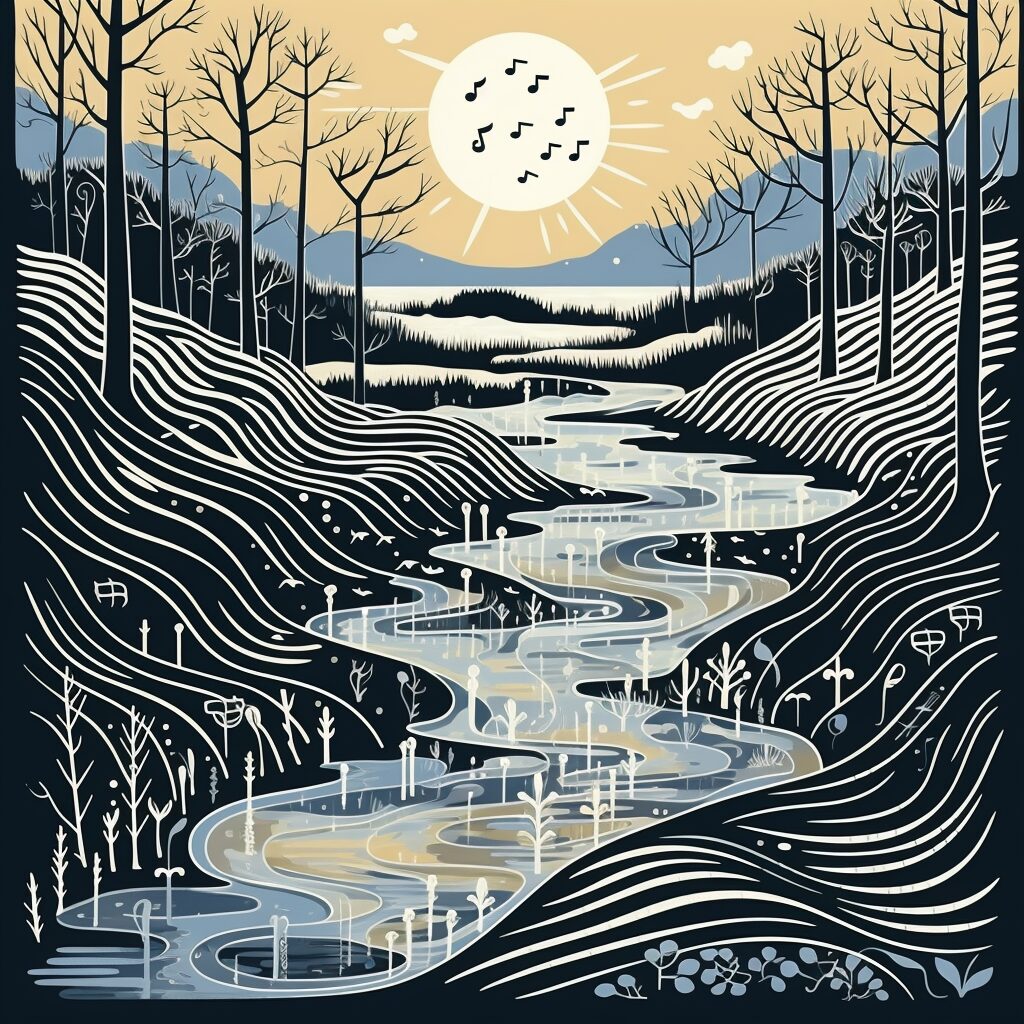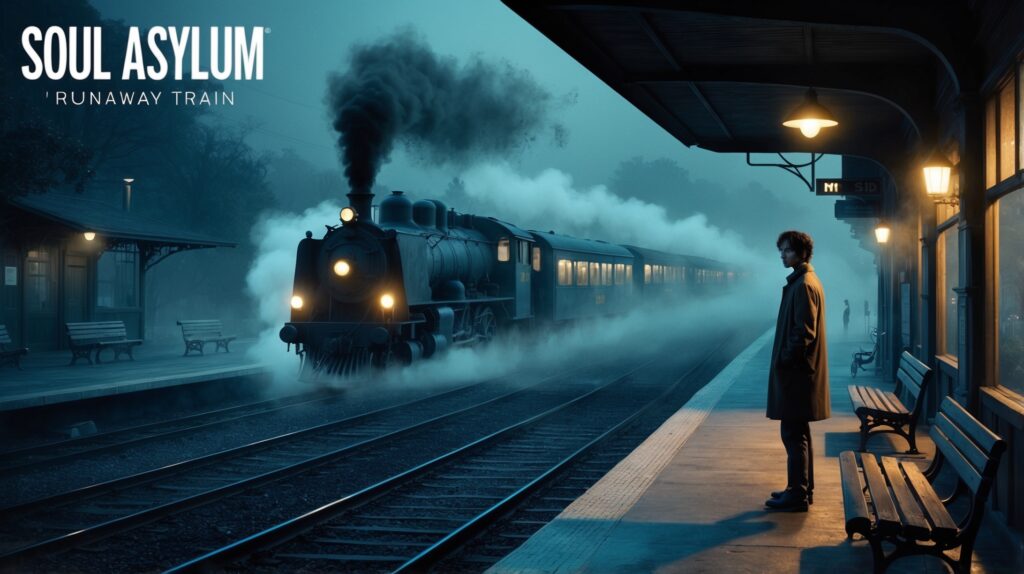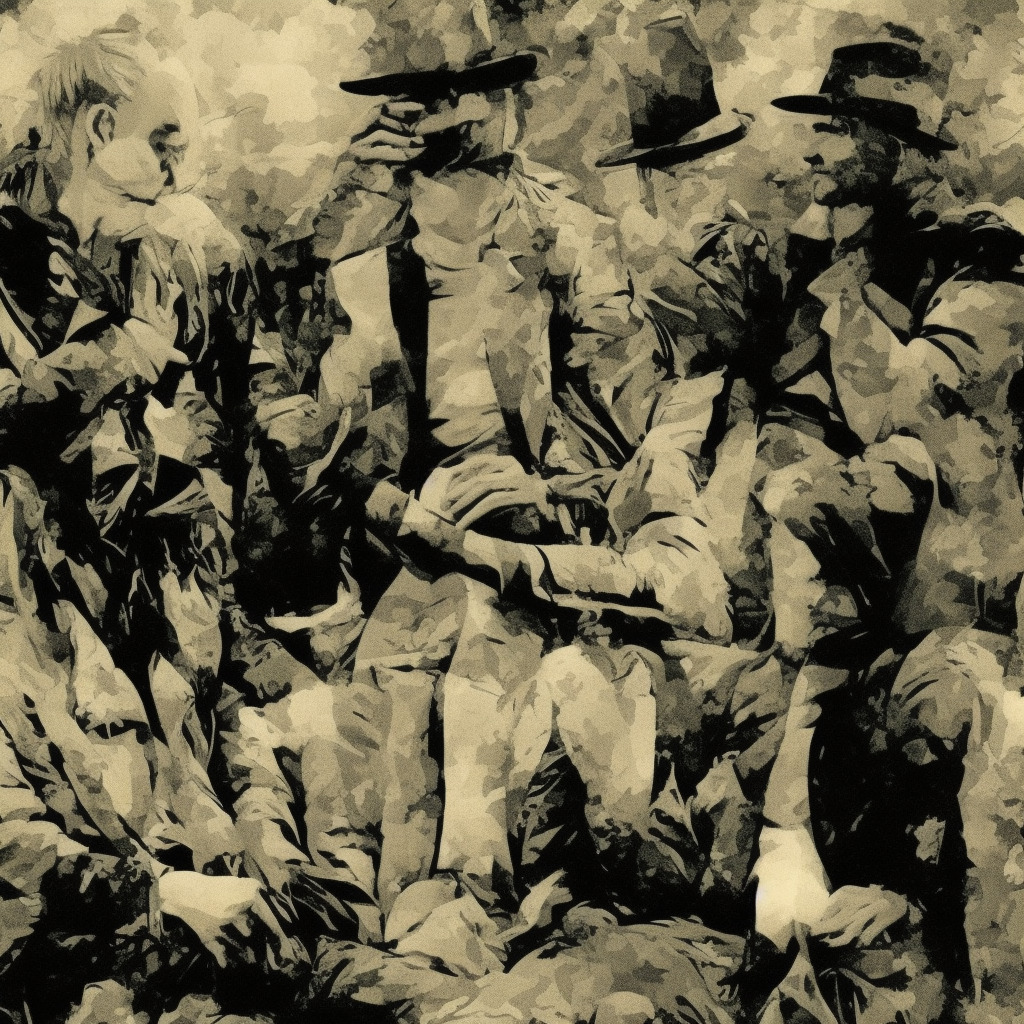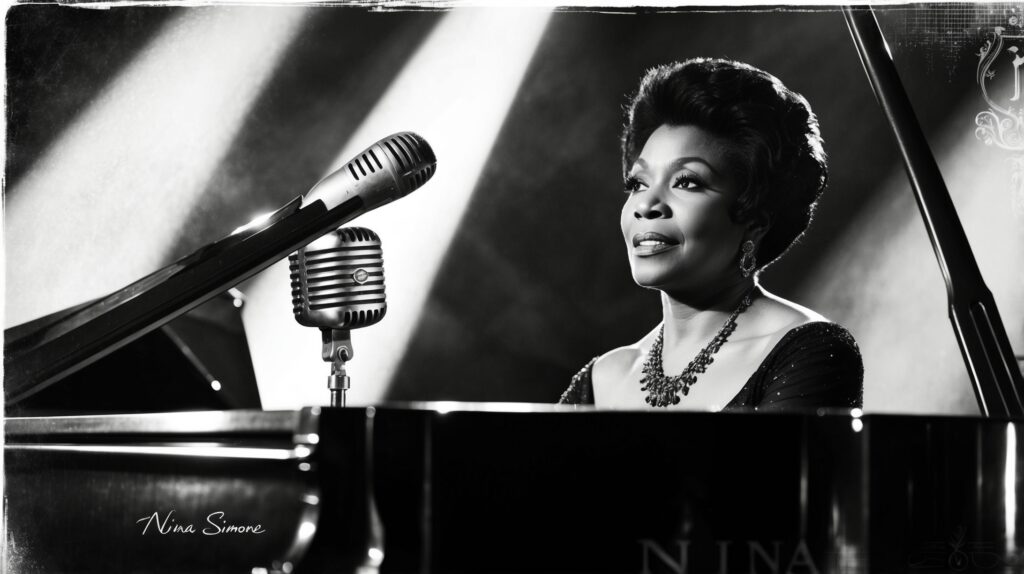In the realm of music, few songs manage to touch the soul and evoke a sense of introspective reflection quite like Joni Mitchell’s “River.” Released as part of her seminal album “Blue” in 1971, this song stands as a testament to Mitchell’s unparalleled ability to weave personal narratives with universal themes, creating a tapestry of sound that resonates with listeners across generations. “River” is not just a song; it is an emotional journey that explores the depths of longing, the pangs of loss, and the bittersweet beauty of life’s fleeting moments. This piece delves into the intricate layers of “River,” from the hauntingly beautiful piano melodies that pay homage to “Jingle Bells” to the raw, candid lyrics that reveal Mitchell’s soul. Through an exploration of the song’s structure, lyrical depth, and its place within the broader context of Mitchell’s discography and the album “Blue,” we invite readers to sail down this metaphorical river and discover the profound impact of Joni Mitchell’s musical genius.
Joni Mitchell: Crafting the River of Emotion
Joni Mitchell’s “River” stands as a testament to her unparalleled ability to blend personal narrative with universal emotion. Set against the backdrop of her 1971 album “Blue,” this song reflects a pivotal moment in Mitchell’s career, marked by introspective songwriting and a deep connection to the human experience. Through “River,” Mitchell invites listeners on a journey of love, loss, and longing, set to the haunting melody of a holiday season tinged with regret.
 Joni Mitchell, a name that resonates with the echoes of lyrical poetry and melodic artistry, holds “River” as one of her most poignant masterpieces. This song, nestled within the heart of her iconic album “Blue,” showcases Mitchell’s profound ability to weave personal narratives into universal themes. The era surrounding “River’s” release in 1971 was a time of both tumult and triumph for Mitchell, marking a phase of introspective songwriting that would solidify her legacy in the annals of music history.
Joni Mitchell, a name that resonates with the echoes of lyrical poetry and melodic artistry, holds “River” as one of her most poignant masterpieces. This song, nestled within the heart of her iconic album “Blue,” showcases Mitchell’s profound ability to weave personal narratives into universal themes. The era surrounding “River’s” release in 1971 was a time of both tumult and triumph for Mitchell, marking a phase of introspective songwriting that would solidify her legacy in the annals of music history.
Born in Fort Macleod, Alberta, Canada, Joni Mitchell’s journey into music was as serendipitous as it was destined. With a background painted in the hues of both hardship and resilience, Mitchell’s early life was a testament to her enduring spirit. Her career beginnings in the folk clubs of Canada set the stage for a voyage that would transcend geographical and musical boundaries.
“River” came to life during a period of personal upheaval and artistic exploration for Mitchell. The song’s genesis is deeply intertwined with her relationship with fellow musician Graham Nash, serving as a melancholic reflection on their separation. This personal narrative, set against the backdrop of the holiday season, resonated with listeners for its raw honesty and emotional depth.
Mitchell’s collaboration with other artists and her approach to music were revolutionary. Her partnership with Nash, among others, not only influenced her creative process but also contributed to the vibrant tapestry of the 1970s music scene. The initial reception of “River” and the “Blue” album was a reflection of the era’s appetite for authenticity and emotional vulnerability.
The song’s creation is a tale of artistic solitude, with Mitchell drawing inspiration from her own experiences and the world around her. The piano accompaniment, borrowing from “Jingle Bells,” adds a layer of festive melancholy, making “River” a holiday standard for those seeking solace in its flowing melodies.
Mitchell’s contributions to music extend beyond her individual achievements. Her ability to capture the complexities of the human experience, coupled with her innovative guitar tunings and poetic lyricism, has left an indelible mark on artists across genres. “River,” in its essence, encapsulates the spirit of Joni Mitchell’s artistry – a river of emotion, winding through the landscape of human experience, touching the shores of countless hearts.
River” Flows Through the Hearts of Many
Joni Mitchell’s “River” has transcended its original album release to become a beloved classic, covered by numerous artists and achieving notable chart success with Ellie Goulding’s rendition. Its emotional depth and lyrical beauty continue to inspire new interpretations and appearances in various media, making it a timeless piece that resonates with audiences around the world.
 “River” by Joni Mitchell, while not initially released as a single, has garnered significant acclaim over the years, especially for its emotional depth and lyrical beauty. One notable milestone was achieved in December 2019 when a cover version of “River” by Ellie Goulding reached number one on the UK Singles Chart, marking it as the last number-one song of the decade in the UK. This version was unique as it was primarily available through Amazon Music and YouTube, finding its way to the top largely through passive streams, particularly from Amazon’s Christmas playlists on devices like Alexa. The song was certified Silver in the UK, denoting over 200,000 sales and streaming figures.
“River” by Joni Mitchell, while not initially released as a single, has garnered significant acclaim over the years, especially for its emotional depth and lyrical beauty. One notable milestone was achieved in December 2019 when a cover version of “River” by Ellie Goulding reached number one on the UK Singles Chart, marking it as the last number-one song of the decade in the UK. This version was unique as it was primarily available through Amazon Music and YouTube, finding its way to the top largely through passive streams, particularly from Amazon’s Christmas playlists on devices like Alexa. The song was certified Silver in the UK, denoting over 200,000 sales and streaming figures.
The allure of “River” extends far beyond its chart success. The song has become one of the most covered tracks in Mitchell’s repertoire, second only to “Both Sides, Now”. Artists across genres, from pop to folk and jazz, have rendered their versions of this poignant ballad. Notable covers include those by Linda Ronstadt, Barry Manilow, Robert Downey Jr., Sarah McLachlan, and James Taylor, each bringing their unique interpretation to the song. The wide array of covers highlights “River’s” universal appeal and its ability to resonate with diverse audiences.
“River” has also made its mark in various media, featured in TV shows and movies, further cementing its place in popular culture. Its lyrical themes of longing and reflection make it a poignant selection for many holiday playlists, despite Mitchell’s original intention not being to create a Christmas song per se. The song’s inclusion of the “Jingle Bells” riff and its opening line referencing Christmas have nonetheless secured its position as a modern holiday standard.
River” – A Visual Ode to Joni’s Artistry
The 50th-anniversary music video for Joni Mitchell’s “River,” directed by Matvey Rezanov and animated by Skazka Studios, is a visual masterpiece that combines the song’s emotional depth with Mitchell’s artistic talent. Using animated watercolor painting, the video captures the song’s introspective mood, offering a new layer of interpretation and enhancing its enduring popularity.
 To celebrate the 50th anniversary of “River,” Joni Mitchell released an official music video that beautifully encapsulates the song’s introspective and melancholic mood. Directed by Matvey Rezanov and produced by Skazka Studios, the video is a masterpiece of animated watercolor painting. This artistic choice is not just a nod to the song’s emotional depth but also a tribute to Mitchell’s own prowess as a painter, intertwining her musical and visual art talents.
To celebrate the 50th anniversary of “River,” Joni Mitchell released an official music video that beautifully encapsulates the song’s introspective and melancholic mood. Directed by Matvey Rezanov and produced by Skazka Studios, the video is a masterpiece of animated watercolor painting. This artistic choice is not just a nod to the song’s emotional depth but also a tribute to Mitchell’s own prowess as a painter, intertwining her musical and visual art talents.
The music video’s use of watercolor animation serves to visually represent the fluidity and depth of the song’s themes, with its lonesome mood perfectly captured through the gentle and evocative movements of color and form. This approach provides a new layer of interpretation to “River,” enhancing its popularity and inviting viewers into a more immersive experience of the song.
The video’s reception has been one of appreciation and admiration, highlighting Mitchell’s ability to continue influencing and captivating audiences even decades after the song’s initial release. By combining her musical and artistic talents, Mitchell offers a unique visual journey that complements the song’s introspective narrative, further cementing “River’s” place in the pantheon of timeless classics.
River” Finds Its Stream to Chart Triumph
“River” by Joni Mitchell, through its chart-topping cover by Ellie Goulding and its Silver certification in the UK, demonstrates the song’s enduring appeal and financial success. Its widespread covers and media appearances highlight its cultural impact, making it a timeless piece in Mitchell’s legacy and holiday music traditions.
 Joni Mitchell’s “River” may not have been released as a commercial single initially, but its enduring appeal, particularly during the holiday seasons, has carved a unique path for the song in music history. The song’s most notable chart achievement came in 2019, decades after its original release, when Ellie Goulding’s cover version soared to number one on the UK Singles Chart on 27 December, marking it as the last number-one song of the decade in the UK. This version, available exclusively through Amazon Music and YouTube, capitalized on the passive streaming trend, with Amazon adding it to their Christmas playlists, which significantly contributed to its chart-topping success.
Joni Mitchell’s “River” may not have been released as a commercial single initially, but its enduring appeal, particularly during the holiday seasons, has carved a unique path for the song in music history. The song’s most notable chart achievement came in 2019, decades after its original release, when Ellie Goulding’s cover version soared to number one on the UK Singles Chart on 27 December, marking it as the last number-one song of the decade in the UK. This version, available exclusively through Amazon Music and YouTube, capitalized on the passive streaming trend, with Amazon adding it to their Christmas playlists, which significantly contributed to its chart-topping success.
The certification of the song in the UK as Silver, for sales and streaming figures combined of over 200,000 units, underscores its financial success and popularity in the digital age. The song’s journey on the charts is a testament to its timeless quality and the emotional resonance it continues to find with new generations of listeners.
“River” stands out in Joni Mitchell’s discography not just for its chart performance but for its role in solidifying her legacy as a singer-songwriter. It is one of her most covered songs, second only to “Both Sides, Now,” with covers spanning across genres from pop to jazz, reflecting its broad appeal. The song has been featured in various media, further enhancing its popularity and cultural impact.
The marketing and promotional strategies for “River” have evolved with the digital age, with streaming platforms playing a significant role in its resurgence. The song’s appearance on holiday playlists and its inclusion in films and TV shows have helped maintain its relevance. The public and critical reception of “River” has always been positive, with fans and critics alike praising its emotional depth and lyrical beauty.
“River’s” influence extends beyond charts and sales figures, becoming an anthem of longing and reflection during the holiday season. Its legacy is evident in the multitude of artists who have covered the song, each bringing their unique interpretation while paying homage to Mitchell’s original masterpiece. The song’s success on streaming platforms and social media has introduced it to a new generation of fans, ensuring its place in the holiday music canon for years to come.
They’re cutting down trees
They’re putting up reindeer
And singing songs of joy and peace
Oh, I wish I had a river
I could skate away on
But it don’t snow here
It stays pretty green
I’m going to make a lot of money
Then I’m going to quit this crazy scene
I wish I had a river
I could skate away on
I wish I had a river so long
I would teach my feet to fly
Oh, I wish I had a river
I could skate away on
I made my baby cry
He tried hard to help me
You know, he put me at ease
And he loved me so naughty
Made me weak in the knees
Oh, I wish I had a river
I could skate away on
I’m so hard to handle
I’m selfish and I’m sad
Now I’ve gone and lost the best baby
That I ever had
Oh, I wish I had a river
I could skate away on
I wish I had a river so long
I would teach my feet to fly
Oh, I wish I had a river
I could skate away on
I made my baby say goodbye
It’s coming on Christmas
They’re cutting down trees
They’re putting up reindeer
Singing songs of joy and peace
I wish I had a river
I could skate away on
Navigating the Emotional Currents of “River
“River” by Joni Mitchell is a poignant exploration of loss and longing set against the holiday season’s contrasting backdrop. Through its introspective lyrics, metaphorical imagery, and the haunting melody borrowed from “Jingle Bells,” the song captures the universal desire to escape life’s sorrows. Its enduring appeal lies in its emotional depth, relatability, and the unique place it holds as a melancholic yet beloved holiday classic.
 Joni Mitchell’s “River” is a masterclass in emotional storytelling, weaving a narrative that is both deeply personal and universally resonant. The song, set against the backdrop of the holiday season, explores themes of regret, loss, and the desire for escape. Its opening lines, alluding to the festive mood with a reference to Christmas, juxtapose the song’s underlying sadness, highlighting the contrast between societal joy and personal sorrow.
Joni Mitchell’s “River” is a masterclass in emotional storytelling, weaving a narrative that is both deeply personal and universally resonant. The song, set against the backdrop of the holiday season, explores themes of regret, loss, and the desire for escape. Its opening lines, alluding to the festive mood with a reference to Christmas, juxtapose the song’s underlying sadness, highlighting the contrast between societal joy and personal sorrow.
The narrative style of “River” is introspective, with Mitchell using the first-person perspective to invite listeners into her world of reflection and longing. The use of a flowing river as a metaphor for escape and change is poignant, symbolizing a wish to be carried away from one’s troubles. This imagery, coupled with the borrowed melody from “Jingle Bells,” adds layers of depth to the song, intertwining feelings of nostalgia with the pain of lost love.
Mitchell employs literary devices such as metaphor and allusion to enhance the song’s lyrical quality. The river is not just a body of water but a symbol of movement, change, and the passage of time. The juxtaposition of Christmas cheer with the song’s melancholic tone creates a powerful contrast, making the longing for a “river to skate away on” even more poignant.
When compared to Mitchell’s other works, “River” stands out for its raw vulnerability. Unlike the broader societal themes in songs like “Big Yellow Taxi,” “River” is an intimate confession of personal regret. This introspection is part of what makes the song so relatable; it captures a universal feeling of wanting to flee from our problems, especially during times when the world expects us to be at our happiest.
“River’s” emotional impact is undeniable. It taps into the collective human experience of dealing with loss and the complexity of emotions that the holiday season can evoke. This relatability has contributed significantly to the song’s enduring popularity and its place in holiday music repertoires, offering solace to those who find themselves reflecting on what has been and what might have been.
The Melancholic Harmony of “River
“River” showcases Joni Mitchell’s mastery in blending simple musical structures with deep emotional narratives. The song’s use of “Jingle Bells,” minor chords, and subtle variations in composition create a poignant holiday classic that stands out in her discography for its introspective and melancholic beauty.
 “River” by Joni Mitchell, a track from her iconic album “Blue,” is a poignant example of her musical genius. The song begins with an unmistakable nod to “Jingle Bells,” a clever device that immediately sets a seasonal context while also hinting at the song’s deeper narrative of longing and melancholy. This introduction, played in sixths, lays the foundation for the song’s complex emotional landscape.
“River” by Joni Mitchell, a track from her iconic album “Blue,” is a poignant example of her musical genius. The song begins with an unmistakable nod to “Jingle Bells,” a clever device that immediately sets a seasonal context while also hinting at the song’s deeper narrative of longing and melancholy. This introduction, played in sixths, lays the foundation for the song’s complex emotional landscape.
The song’s structure is relatively straightforward, yet it’s the subtleties in Mitchell’s composition that lend “River” its profound impact. The piano-driven piece is characterized by steady root-fifth-octave patterns in the left hand, creating a solid yet flowing foundation that mirrors the song’s lyrical themes of movement and change. The right hand complements this with triads, sixths, and melodic fragments, adding layers of emotion and narrative depth.
Throughout “River,” there are subtle variations in the repetition of verse and chorus sections, avoiding the use of repeat symbols and instead opting for full transcriptions to capture the nuances in dynamics and tempo. These subtle shifts contribute significantly to the song’s introspective feel, inviting listeners to delve deeper into the emotional currents Mitchell navigates through her lyrics and melody.
The song’s chord progression, particularly the innovative use of minor chords, transforms the traditionally cheerful “Jingle Bells” into a somber ode. This transformation underscores Mitchell’s longing for a happier time, evoking the frozen landscapes of her childhood in Saskatchewan, Canada. The melancholy is further accentuated by Mitchell’s fragile vocal delivery, which, combined with the chord changes, creates an emotional depth that words alone might not achieve.
In the context of Mitchell’s discography, “River” stands out for its raw emotional honesty and simplicity. While her shift towards jazz experimentation is evident in later works, the straightforward yet deeply moving composition of “River” showcases her ability to convey complex emotions through simple musical structures.
“River” is not just a song but an emotional journey, reflecting Mitchell’s unparalleled ability to blend narrative and musicality. Its enduring appeal lies in this seamless integration of melody, harmony, and narrative, making it a timeless piece in the canon of holiday music and beyond.
Joni Mitchell – The Architect of “River
Joni Mitchell’s composition of “River” showcases her signature blend of introspective lyrics and innovative musical arrangements. Known for her profound influence on folk, rock, and jazz, Mitchell’s work on “River” reflects her personal experiences and the depth of her emotional expression. Her legacy as a composer is defined by her ability to craft songs that resonate with a broad audience, leaving an indelible mark on the music industry.
 Joni Mitchell, the composer of “River,” stands as a monumental figure in the music industry, known for her profound impact on the folk, rock, and jazz genres. With her roots in the vast landscapes of Canada, Mitchell’s musical journey began in the clubs of Saskatchewan, eventually leading her to the vibrant scenes of Toronto and the United States. Her unique blend of poetic lyricism and innovative guitar tunings set her apart early in her career, leading to notable achievements including multiple Grammy Awards and induction into the Rock and Roll Hall of Fame.
Joni Mitchell, the composer of “River,” stands as a monumental figure in the music industry, known for her profound impact on the folk, rock, and jazz genres. With her roots in the vast landscapes of Canada, Mitchell’s musical journey began in the clubs of Saskatchewan, eventually leading her to the vibrant scenes of Toronto and the United States. Her unique blend of poetic lyricism and innovative guitar tunings set her apart early in her career, leading to notable achievements including multiple Grammy Awards and induction into the Rock and Roll Hall of Fame.
Mitchell’s musical style is characterized by its introspective depth, complex harmonies, and intricate melodies. Influenced by a wide array of artists from folk and rock to classical and jazz, her music defies simple categorization. Her ability to blend these influences seamlessly, along with her distinctive voice, makes her compositions instantly recognizable.
“River” is a testament to Mitchell’s collaborative spirit, reflecting her personal experiences and emotional depth. While primarily known for her solo work, her interactions with contemporaries such as Graham Nash, whom “River” is widely speculated to be about, played a significant role in her creative process. These partnerships, though not always directly collaborative in the conventional sense, influenced her music’s emotional and lyrical content.
In “River,” Mitchell’s composition skills shine through the song’s simple yet evocative piano arrangement. The song begins with a nod to “Jingle Bells,” subtly altered to convey a sense of melancholy, illustrating her skill in recontextualizing familiar melodies to match the song’s emotional tone. This piece showcases her ability to convey complex emotions through minimalist arrangements, a hallmark of her compositional style.
The interplay between lyrics and music in “River” is a prime example of Mitchell’s compositional prowess. The melancholic piano lines complement the introspective lyrics, creating a cohesive narrative that resonates with listeners. This synergy between words and music is a defining feature of Mitchell’s work, enhancing the song’s emotional impact.
“River” holds a unique place in Mitchell’s discography, embodying the introspective and confessional style of her album “Blue.” While her later works would explore broader societal themes and more complex musical arrangements, “River” remains a poignant reflection of her personal narrative at the time of its composition.
Critically, Mitchell’s work on “River” and her broader contributions to music have been met with widespread acclaim. Her innovative approach to songwriting and composition has not only earned her numerous accolades but also influenced countless artists across genres.
Mitchell’s reflections on “River” and her music offer insights into her creative process, revealing the deeply personal nature of her work. Her legacy as a composer is marked by her ability to blend lyrical and musical storytelling, creating songs that continue to inspire and resonate with new generations of listeners and musicians.
Blue” – A Canvas of Joni Mitchell’s Emotions
Joni Mitchell’s “Blue” is celebrated as a seminal album in music history, known for its deep emotional resonance and minimalist instrumentation. Its success and critical acclaim underline its status as a timeless masterpiece, influencing generations of artists and listeners alike.
 Joni Mitchell’s album “Blue,” released on June 22, 1971, is a profound exploration of the human emotional spectrum, painted on the canvas of Mitchell’s personal experiences and musical genius. Recorded at A&M Studios in Hollywood, “Blue” is heralded as one of the most iconic albums in music history, showcasing Mitchell’s raw, unguarded emotions through its tracks.
Joni Mitchell’s album “Blue,” released on June 22, 1971, is a profound exploration of the human emotional spectrum, painted on the canvas of Mitchell’s personal experiences and musical genius. Recorded at A&M Studios in Hollywood, “Blue” is heralded as one of the most iconic albums in music history, showcasing Mitchell’s raw, unguarded emotions through its tracks.
The album, characterized by its candid lyrical content and minimalist instrumentation, primarily features Mitchell’s voice accompanied by her piano and dulcimer. This intimate arrangement serves to highlight the vulnerability and honesty in her songwriting. “Blue” delves into themes of love, loss, and longing, making it an enduring masterpiece of the singer-songwriter genre.
Commercially, “Blue” achieved significant success, peaking at number 15 on the Billboard 200 in the US and number three on the UK Albums Chart. Its enduring appeal is reflected in its platinum certification in the US, denoting over a million copies sold. Notably, the album saw a resurgence in popularity in 2021, topping iTunes 50 years post its release, a testament to its timeless quality and relevance.
Critically, “Blue” is universally acclaimed, often cited by music critics as one of the greatest albums of all time. Its emotional depth, combined with Mitchell’s innovative songwriting and compositions, has earned it spots in numerous “best of” lists, including The New York Times’ 25 albums that represented “turning points and pinnacles in 20th-century popular music”. The album’s introspective nature and lack of personal defenses, as Mitchell herself described, connect with listeners on a profound level, offering a musical experience that is both intimate and universal.
In the context of Mitchell’s discography, “Blue” stands as a pivotal work that encapsulates her transition from folk to more complex musical and thematic explorations. It marks a period of intense creativity and personal reflection for Mitchell, influencing not only her subsequent work but also generations of musicians and songwriters who cite “Blue” as a key inspiration.
The album’s legacy is evident in its continued critical acclaim and influence on artists across genres. It remains a cornerstone of Mitchell’s career and a defining example of the power of music to convey deep personal emotions and resonate with a wide audience.
River” – A Timeless Reflection on Love and Loss
Joni Mitchell’s “River” is a masterful blend of personal narrative and musical artistry, offering a poignant reflection on love and loss. Its enduring appeal lies in its emotional depth and the universality of its themes, solidifying its place as a timeless piece in the canon of modern music.
 Joni Mitchell’s “River,” from her acclaimed album “Blue,” stands as a poignant testament to the power of music to capture the complexities of the human heart. Through its introspective lyrics, evocative melodies, and Mitchell’s raw, heartfelt delivery, the song offers a deeply personal yet universally resonant narrative of longing and reflection.
Joni Mitchell’s “River,” from her acclaimed album “Blue,” stands as a poignant testament to the power of music to capture the complexities of the human heart. Through its introspective lyrics, evocative melodies, and Mitchell’s raw, heartfelt delivery, the song offers a deeply personal yet universally resonant narrative of longing and reflection.
“River” distinguishes itself not only as a highlight of Mitchell’s illustrious career but also as a significant piece in the tapestry of modern music. Its influence extends beyond the confines of genre and generation, resonating with listeners who find solace and understanding in its melancholic beauty. The song’s integration of a familiar holiday melody with a narrative of personal regret offers a unique twist on the traditional Christmas canon, making it a staple for those seeking a deeper emotional connection during the holiday season.
The enduring appeal of “River” is a testament to Mitchell’s genius as both a composer and a storyteller. Her ability to weave complex emotions into a simple yet profound musical arrangement demonstrates the depth of her artistry and the sincerity of her expression. The song’s place in the album “Blue” further accentuates its significance, contributing to the album’s reputation as one of the most honest and emotionally raw records in music history.
As we reflect on “River” and its place in Joni Mitchell’s discography, it’s clear that the song’s legacy is interwoven with its creator’s willingness to explore the depths of her own experiences and share them with the world. Mitchell’s vulnerability in “River” serves as a beacon for artists and listeners alike, encouraging an honest exploration of one’s own emotions and experiences through the medium of music.
In conclusion, “River” remains a powerful ode to the human condition, a song that transcends time and genre to touch the hearts of listeners around the world. Its beauty lies not only in its melody and lyrics but also in its ability to connect us to our deepest emotions and to each other, reminding us of the shared experiences that bind us all.
Diving deep into the soul-stirring currents of Joni Mitchell’s ‘River’ – a song that navigates the icy waters of longing and regret. It’s not just a Christmas tune; it’s a journey of self-reflection and longing for change.

 #JoniMitchell #River #MusicMagic
#JoniMitchell #River #MusicMagic






